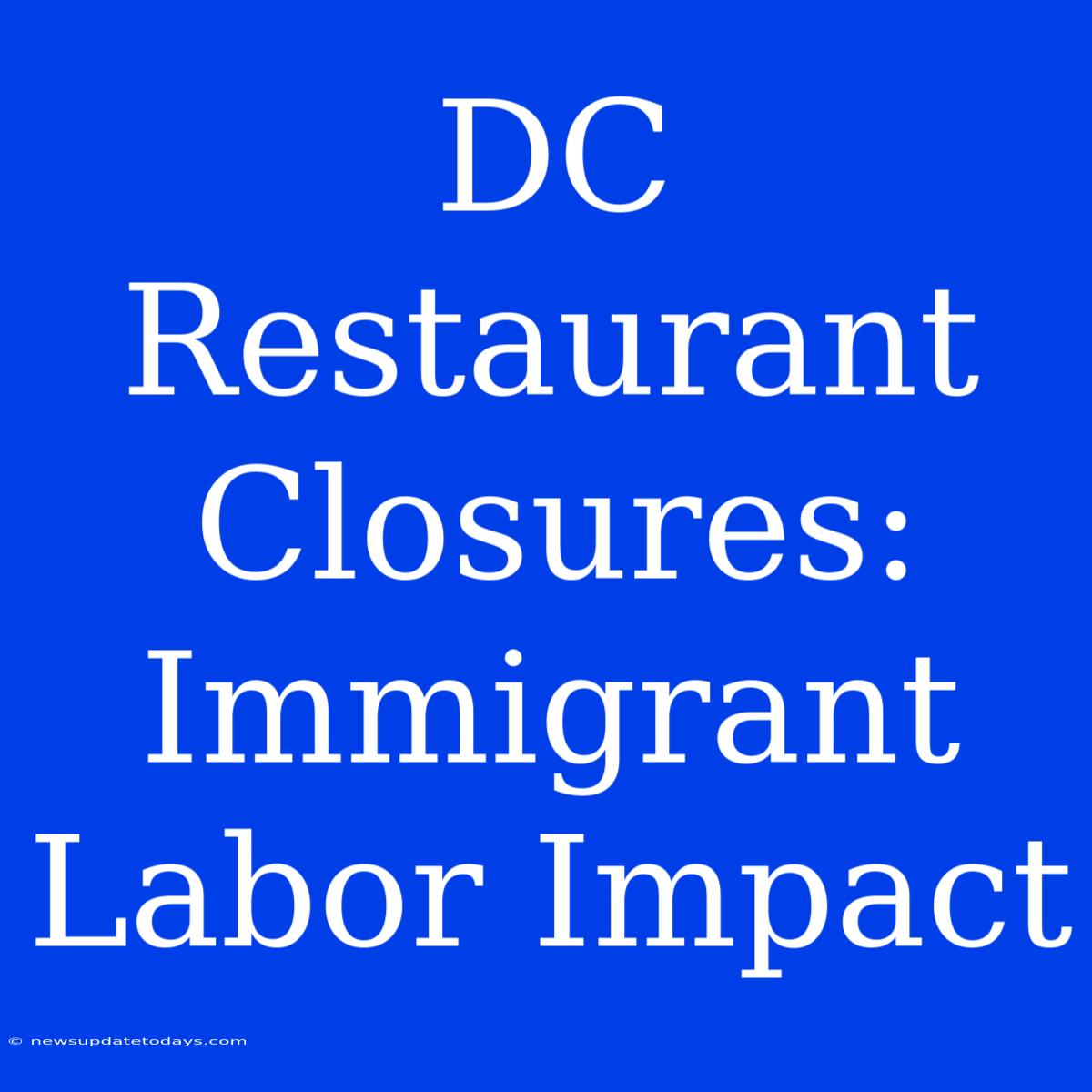DC Restaurant Closures: The Devastating Impact on Immigrant Workers
The recent wave of restaurant closures in Washington, D.C. has shone a harsh light on a critical issue often overlooked: the disproportionate impact on immigrant workers. While economic downturns and changing consumer habits contribute to business failures, the human cost, particularly within the immigrant community, is profound. This article delves into the specific challenges faced by these workers and explores potential solutions.
The Vulnerable Workforce
Many D.C. restaurants rely heavily on immigrant labor. These individuals often fill crucial roles, from cooks and servers to dishwashers and bussers. They are frequently undocumented or hold precarious legal statuses, making them particularly vulnerable to exploitation and job displacement. Their limited English proficiency and lack of access to support networks further exacerbate their challenges.
Key vulnerabilities include:
- Limited legal protections: Undocumented workers often fear reporting workplace violations due to the risk of deportation.
- Wage theft: Exploitation is more common amongst vulnerable populations, with underpaid wages and denied benefits rampant.
- Lack of benefits: Many immigrant workers lack access to healthcare, sick leave, and unemployment insurance, leaving them financially devastated during job loss.
- Language barriers: Navigating the complexities of unemployment benefits and legal recourse is challenging without adequate language support.
- Difficulty finding new employment: Even with experience, language barriers and immigration status can significantly hinder job searches.
The Ripple Effect of Closures
When restaurants close, the impact extends far beyond the immediate loss of jobs. Families struggle to meet basic needs, including housing, food, and healthcare. Children may face disruptions in their education. The cumulative effect on the community can be substantial, creating a cycle of poverty that is difficult to break.
The consequences of job loss include:
- Housing insecurity: Loss of income leads to potential eviction and homelessness.
- Food insecurity: Families struggle to afford groceries, leading to malnutrition and health problems.
- Increased healthcare costs: Lack of insurance and access to healthcare further compounds existing vulnerabilities.
- Mental health challenges: Job loss contributes to stress, anxiety, and depression within the affected families.
Addressing the Crisis: Potential Solutions
Addressing this complex issue requires a multi-pronged approach that focuses on both immediate relief and long-term systemic change.
Short-term solutions:
- Emergency financial assistance: Providing immediate financial aid to displaced workers can help prevent homelessness and food insecurity.
- Legal aid and advocacy: Connecting workers with legal resources can help them understand their rights and access available benefits.
- Language support services: Offering translation and interpretation services during job searches and benefit applications is crucial.
Long-term solutions:
- Strengthening labor protections: Enacting legislation that protects all workers, regardless of immigration status, from exploitation.
- Immigrant integration programs: Providing job training, language classes, and other support services can help immigrant workers become more self-sufficient.
- Raising the minimum wage: A living wage would provide a crucial safety net for low-wage workers.
- Supporting small businesses: Providing financial assistance and resources to help struggling restaurants stay afloat can prevent mass layoffs.
The closure of D.C. restaurants highlights the fragility of immigrant workers' lives and the urgent need for systemic changes to protect this vulnerable population. By implementing the solutions outlined above, we can mitigate the devastating impact of future closures and build a more equitable and just system for all.

